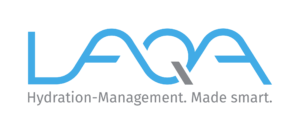Water plays a special role in infant nutrition. Mothers who are unable to breastfeed fully or at all need water to prepare their baby’s bottle right from birth. Water is also needed for the baby’s first thirst and for cooking or mixing porridge in the first year of life. But is tap water sufficient? Or would it be better to use mineral water or so-called baby water?
Breast milk, substitutes and water use
The human organism is very sensitive, especially in the first few months of life. This is why nature has arranged it so that an infant can be fed exclusively on breast milk until the age of four months. If the mother has a balanced diet, her own mother’s breast milk is precisely tailored to her baby’s needs. It provides important energy and building materials for the body, such as carbohydrates, proteins and fats. It also provides the baby with important active ingredients such as minerals, vitamins and substances that strengthen the immune system. If the baby is not exposed to high temperatures, physical stress or illness, it is sufficient as the sole source of fluids in the first four months of life. The same applies to breast milk substitutes up to the fourth month, the so-called infant formula for bottles. With the introduction of complementary foods, water also becomes important for the baby to drink.
Not all water is the same
Water is always required for the preparation of industrial infant milks in the first year of life. This must not contain any harmful substances that could endanger the baby’s health. The decision to use baby water, mineral water or tap water can often be a purely practical or price-related one. But there are also important health aspects:
1. tap water – cheap and mostly safe:
In Germany, tap water in the home is generally always drinking water. It is strictly controlled and in most regions can be drunk by the whole family and used to prepare food. However, dangers can arise from the pipes in the house. Some very old houses still have lead pipes, which can contaminate the drinking water with lead. This poses a serious risk to babies. New copper pipes can also release significant quantities of metal substances into the tap water up to three years after installation.
You should generally leave the water to drain for a few minutes before using it in the kitchen. It is always best to use cold water fresh from the tap. As an infant’s immune system is still very sensitive, it can react to even small amounts of germs with diarrhea. It is therefore advisable to always boil tap water for babies. In regions that are heavily contaminated with nitrate or where the water contains a lot of lime, it is better to use mineral or baby water. Otherwise, the use of tap water for the preparation of infant formula, baby food, tea or just for drinking is unproblematic. Tap water is cheap and readily available.
2. mineral water – practical with the right choice:
Preparing the baby bottle with mineral water is particularly interesting when you are out and about. Mineral water is easy to take with you and guarantees safe bottling in Germany. The bottle should be labeled “Suitable for the preparation of infant formula”. These waters must demonstrably comply with the limits for nitrates and also for carbonic acid. Nevertheless, some mineral waters may contain more contaminants than drinking water, as the legal controls on tap water are stricter and more comprehensive. Mineral water from glass bottles is generally the better choice, as no foreign substances can migrate from them into the water, as is the case with some plastic bottles, for example. Waters that contain only a few minerals are best suited for mixing milk powder, which must have a legally prescribed mineral density anyway.
3. baby water – expensive, but specially tailored:
In recent years, some baby food manufacturers have also been offering special baby water. This is specially produced for the preparation of infant formula in private households. The basis for this is the strictly controlled drinking water, which is also industrially treated. It is bottled germ-free and particularly low in minerals. However, the costs are not insignificant. On average, one liter of baby water would cost the same as around 100 liters of drinking water from the tap.
A tip on water safety for babies:
If you are pregnant or have an infant or small child at home, you can have the tap water tested for contamination. The responsible waterworks, some pharmacies, institutes or the consumer advice center in the region can help here.
